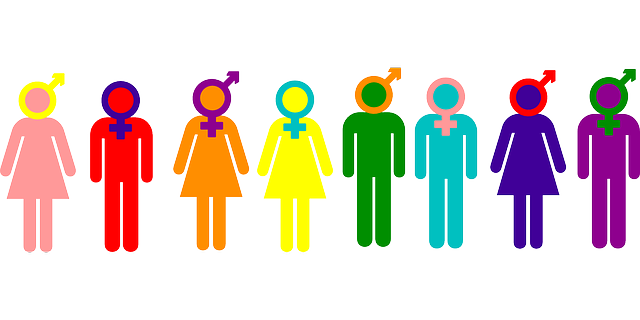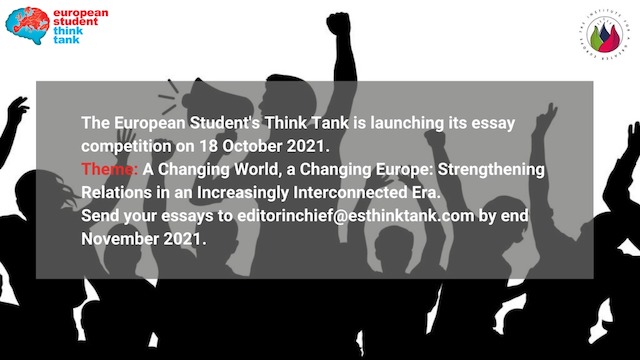
By Amparo Santiago, LLB/International Business undergraduate, editor and writer for the European Student Think Tank
In two weeks’ time, Naomi Climer steps in as the first female president of the Institution of Engineering and Technology – the world’s largest multidisciplinary professional engineering institution. In doing so she is quick to take a strong position as an affirmative action advocate, describing the sector’s gender disparity as “frustrating and disappointing”. Her criticism raises an important question: how receptive is Europe really to her suggestion of gender-based affirmative action?
Workplace gender-based affirmative action aims to address gender inequality through proactive measures in order to take steps to enhance employment opportunities for women. Implicit in it is the belief that equality requires more than just ending discriminatory practices, but actually correcting discrimination. This can take the form of implementing flexible policies like maternity leave, allowing sick days for dependants or even workplace mentoring programs. More controversially, it can include a quota system.
The European Court of Justice (ECJ) has historically treaded carefully in the area of gender-based affirmative action. October 17 of this year will mark the 20th anniversary of the Court’s fiercely debated decision in Kalanke v Freie Hansestadt Bremen where a German state law promoting positive discrimination was held to be a violation of established EU law.
The facts of this case are as follows. Mr Kalanke and Ms Glissman were both shortlisted for promotions in their city’s Parks Department. Both of them were equally qualified. In existence was a Bremen state law requiring that in cases where both a man and woman were equally qualified and applying for the same job, and women were underrepresented in that sector, then automatic priority was to be given to the woman applying. As such, it was Ms Glissman who got the promotion.
Mr Kalanke took his employer to court, and, eventually, the ECJ struck this law down. It stated that a national rule where women were automatically given priority encompassed discrimination on grounds of sex.
The ECJ made this decision despite the existence of a EU Equal Treatment Directive that endorses ‘measures to promote equal opportunity for men and women, in particular by removing existing inequalities which affect women’s opportunities’. The Court referred openly to the Directive but decided that rules giving women automatic and absolute priority “go beyond promoting equal opportunities and overstep the limits of the Directive”. This of course perfectly encapsulates an oft-cited difficulty of affirmative action: preferential hiring is in itself also discrimination.
This case expounded the idea that Europe would not support ‘absolute and unconditional priority’ for appointment or promotion. The ECJ did express the importance of attracting and promoting more women in the workplace but only where that was reached by providing equal opportunities and not through giving an automatic priority.
This ECJ decision was strongly criticised for being confusing and unclear. It was argued that the Bremen law did not in fact give ‘absolute and unconditional priority’ to women. Women only received preferences if they were already under-represented and then only after they had satisfied the condition of being equally qualified. Despite this widespread confusion, the ECJ did not comment any further as to what sort of affirmative action schemes it would permit. It simply took a protectionist stance. Men and women were to be treated in accordance with the same standard.
The ECJ has since softened its position, but only slightly. Two years later in Marschall v Land-Nordrhein-Westfalen the Court upheld another German law that gave priority to female candidates where females were underrepresented at certain levels of the public service and where both female and male candidates were equally qualified. This time, the ECJ acknowledged that ‘the mere fact that a male candidate and a female candidate are equally qualified does not mean that they have the same chances’. It duly recognised that equal treatment does not necessarily produce equality in practice. The deciding factor in this case, though, was the flexibility of the German law: it still permitted special consideration to be given to exceptional male candidates.
Then in 2000, the ECJ in Badeck v Hessischer Ministerprasident upheld another quota system, but again, a ‘flexible ‘one. It was neither automatic nor unconditional. In this case, the gender-based preference could be trumped by ‘reasons of greater legal weight’.
Even through this evolution of the ECJ’s decisions, it is clear that automatic priority for women in certain roles will still not be sanctioned. And it is clear that Naomi Climer’s hopes for fixed quotas would likely encounter resistance on a European level. Only national measures that also guarantee male candidates an ‘objective assessment’ with consideration of all criteria specific to the job, regardless of gender, will be accepted. In the ECJ’s attempt to strike a balance, it seems that the principle of universal equal treatment still reigns.
This piece expresses the opinions of the author only and does not necessarily reflect the position of the European Student Think Tank.
We are still looking for great writers to contribute to the European Student Think Tank!

 Is Nuclear Disarmament Still a Dream? The Third Meeting of State Parties in Perspective
Is Nuclear Disarmament Still a Dream? The Third Meeting of State Parties in Perspective  Strategic Saboteur: Hungary’s Entrenched Illiberalism and the Fracturing of EU Cohesion
Strategic Saboteur: Hungary’s Entrenched Illiberalism and the Fracturing of EU Cohesion  The invention of development: power, narrative, and the afterlife of Truman’s speech
The invention of development: power, narrative, and the afterlife of Truman’s speech  Is the World Trade Organisation a Failure?
Is the World Trade Organisation a Failure? 


